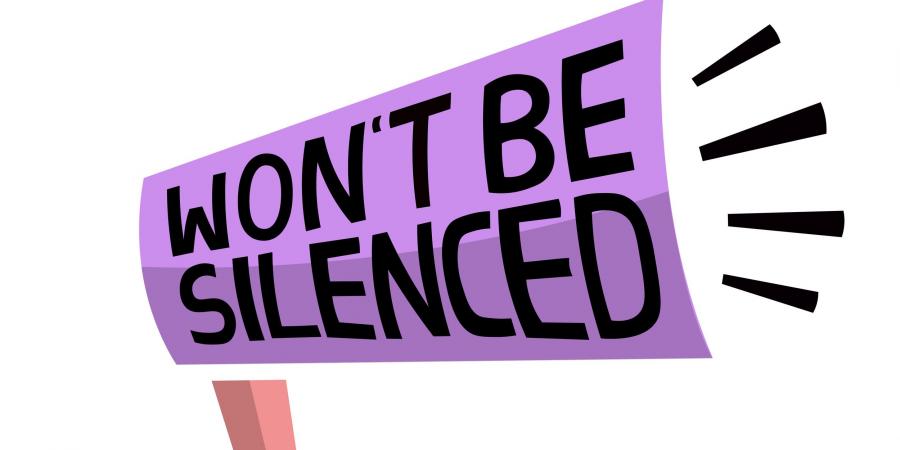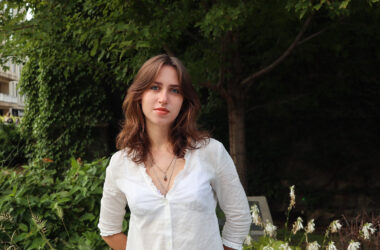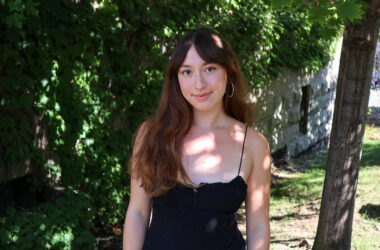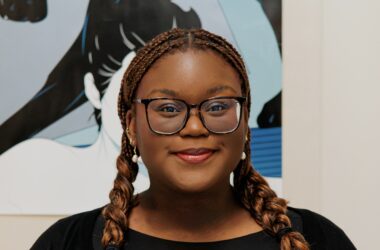For as long as I can remember, I have been described with juxtapositions: Short yet bold; quiet yet opinionated; Southern yet Democrat; young yet informed; petite yet strong. Once you add feminist and atheist to the list, I become even more of an enigma. Growing up in the southern United States, I had been told either explicitly by family or implicitly through societal standards that I was too outspoken in my differences. My words and beliefs do not match my petite, 5’0 appearance, but to the closed-minded, they are supposed to. “You should be seen and not heard.” “Just humour him,” or “put your private school pride in your pocket,” were common as well. Little did the naysayers know, putting me down only strengthened my views and my confidence in myself. Not everyone is motivated by the rude words of others, and I understand why. It hurts when people expect you to fall into line at the cost of expressing yourself. Sometimes, it can be easier to keep the peace. Most people choose not to rock the boat with family. That’s where I have to disagree.
I remember a simpler time, back in 2010, when I created my Facebook account. One of the first things I posted was a meme about why a blank Bible is better than a written one. I quickly learned the typical response from my family members that was to come every time I posted about one of my radical beliefs: “HOW DARE SHE?!” An atheist does not simply joke about the Bible in a family full of Catholics—what heresy! God forbid I go to Hell for a sense of humor, but I digress. This was just the beginning, and the mildest, of my family’s reactions to my burgeoning, atypical beliefs, and my identity as what I deem myself to be now: An “atheist socialist liberal feminist”—the most dangerous combination to any southern Republican.
Then came the 2016 election. I was five days shy of being able to cast a vote, but nothing at the time was more important to me than electing our first female President, who could have been Hillary Clinton. I was informed on policy, current events, and what I wanted for our country: Inclusion, tolerance, racial justice, and female representation in government. But none of that mattered. To my family, I was a teenager unqualified to vote and therefore unqualified to have such opinions. Discussions about politics devolved into personal attacks. I was now not just an atheist, but an unpatriotic anti-American as well. Those close to me told me to move to Canada if I was unhappy at home, and I told them to watch me.
It’s been three years since I moved to Montreal, and here I am again facing the same dilemma. It’s groundhog day: I can hold my tongue for the sake of family, or I can voice my opinions, disregarding the consequences. Though it may be difficult, I will always choose the latter. Coming to McGill has helped me find my voice, without being afraid to use it out of fear of familial strife. It took me 18 years and immigration to Canada, but I am now finally able to surround myself with like-minded people. McGill and Montreal’s international and diverse community has taught me that I need to speak up not only for myself, but also for our futures, whether on a local, national, or global level. I will take whatever comes my way; I can handle it. That’s because the current issues of racial justice, climate change, sexual harassment, misogyny, and unequal pay, to name a few, are no longer issues we can watch from the sidelines. So from here on out, I’ll be at every march, every rally, and every demonstration.










Hi Caroline, black, southern, queer, feminist here. You’re on the right track and I relate to a lot of the experiences you shared, especially my family is heavily religious and I’m not. In addition to attending rallies when you can, please be sure to remember that one of the best ways to be an ally is to educate yourself about these issues and ask the members of the affected communities what they need rather than just showing up at protests. Some better ways to be an active ally include volunteering for community engagement programs that focus on issues like voting rights, housing equity, and food security, supporting small businesses owned by BIPOC, and making recurring donations to nonprofits who are dedicated to solving these issues. No one can attend every march, rally, or demonstration, but everyone take time to examine their own internal biases and can use their time and money.
Here’s a couple of articles I found which I think are better at explaining what I’m trying to say: https://www.powershift.org/sites/default/files/resources/files/checklist-for-white-allies.pdf
https://www.npr.org/2020/09/22/913094440/black-protest-leaders-to-white-allies-it-s-our-turn-to-lead-our-own-fight
Tyler, thank you for your comment! Of course education about current issues is extremely important! I was not able to include everything in this article due to a word limit, and this work was more a personal statement on my own experiences, but you are absolutely correct that being an ally extends further to education and taking action within our own communities. I will look into those articles.
Best,
Caroline